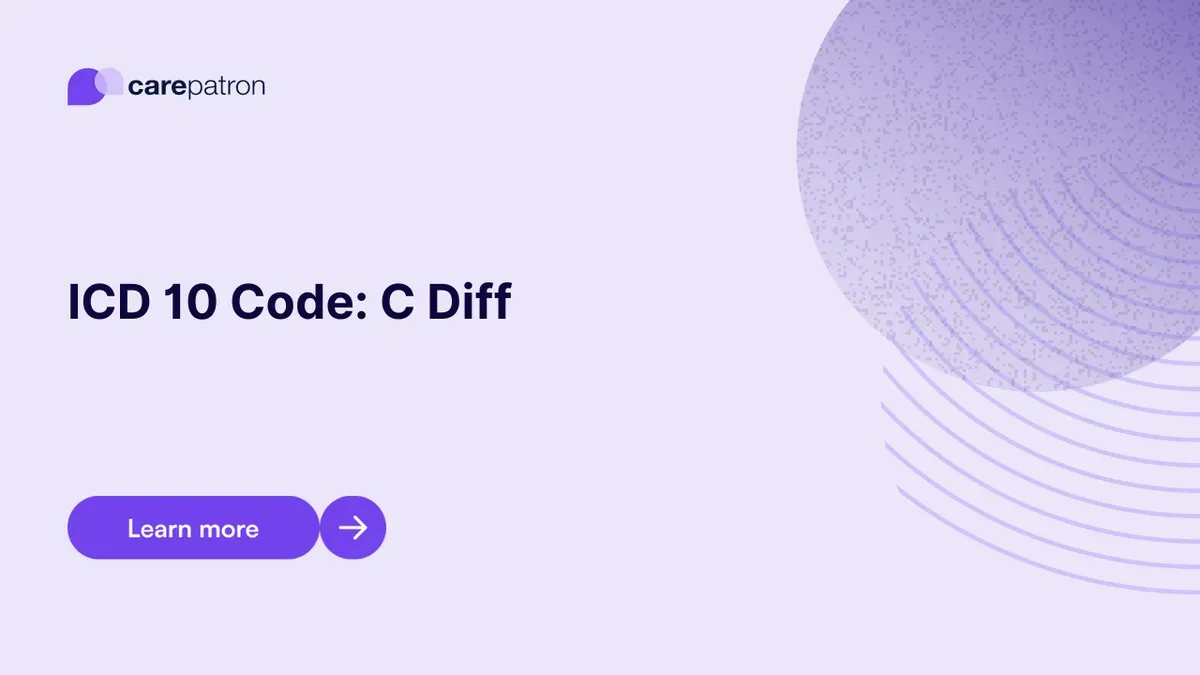
C Diff ICD-10-CM Codes | 2023
Read this short guide to learn about C Diff ICD codes you can use!
Use Code
Commonly asked questions
A person with a C Diff Infection will likely have the following symptoms:
- Diarrhea
- Abdominal pain
- Nausea
- Fever
- Cramps
- Loss of appetite
They will conduct a stool test to check for the presence of C Diff or its toxins in the stool. They might also conduct histopathologies and colonoscopy.
Pseudomembranous colitis is another kind of colitis characterized by the inflammation of the colon’s pseudomembranes. This is a life-threatening condition.
EHR and practice management software
Get started for free
*No credit card required
Free
$0/usd
Unlimited clients
Telehealth
1GB of storage
Client portal text
Automated billing and online payments
